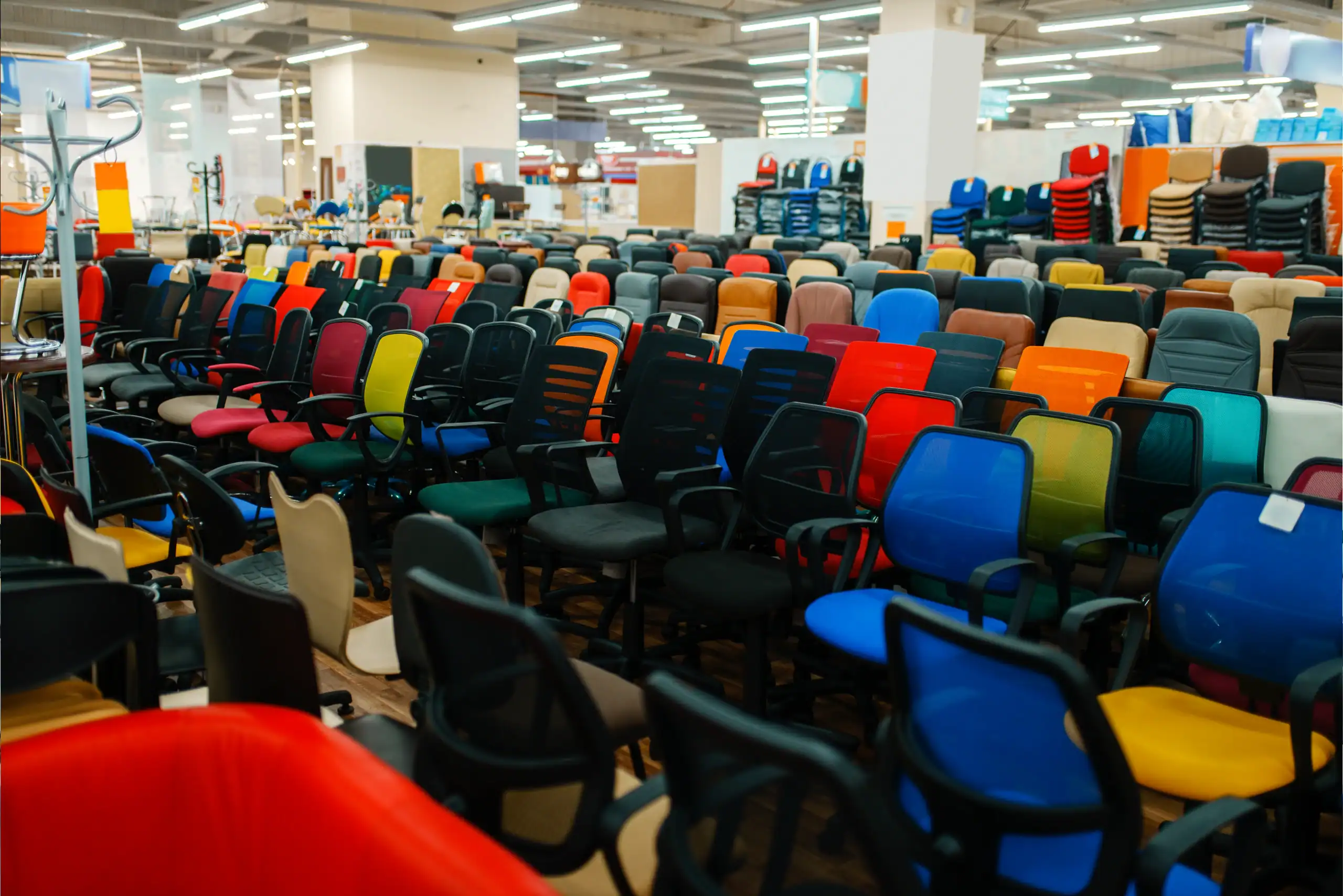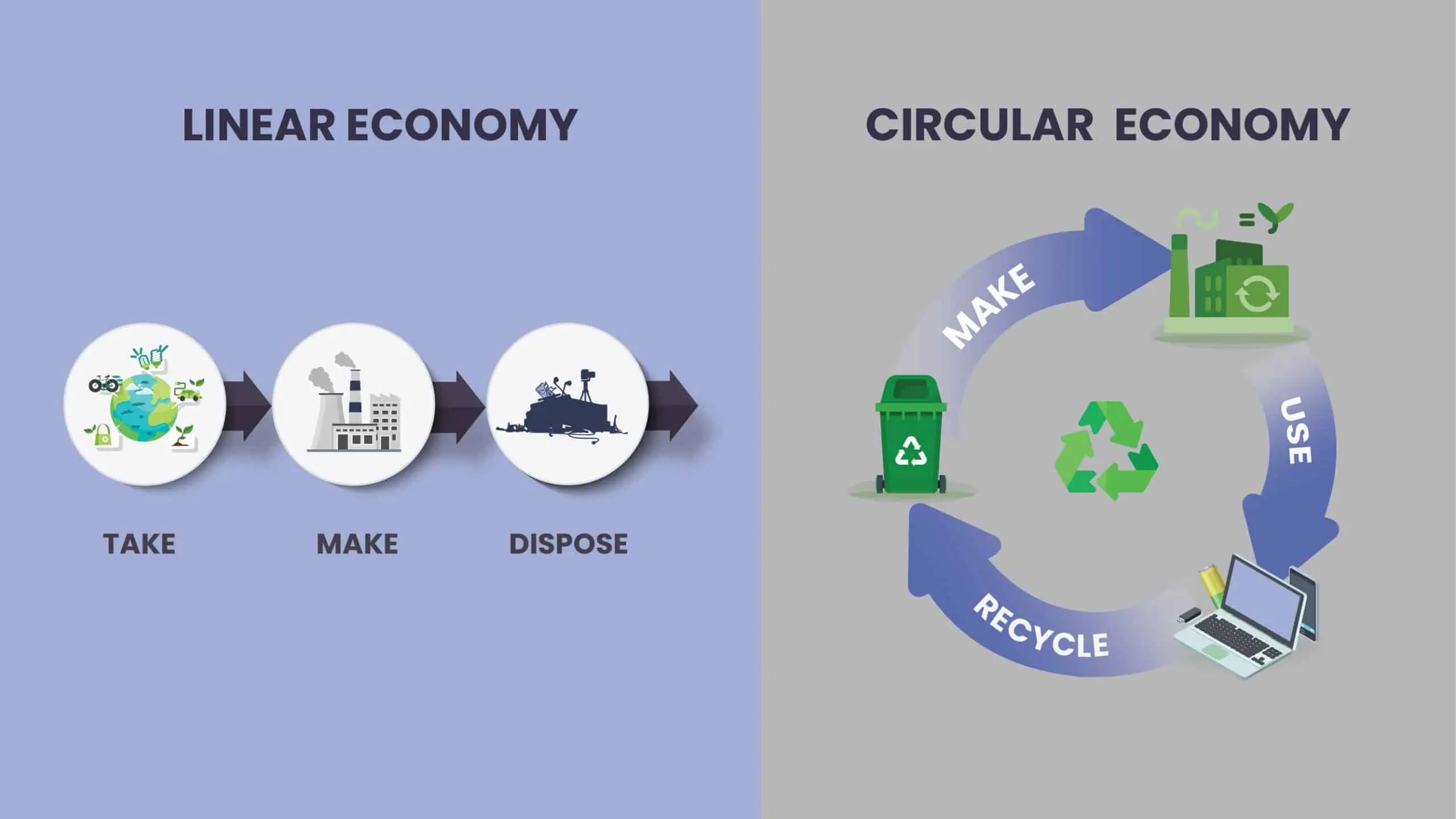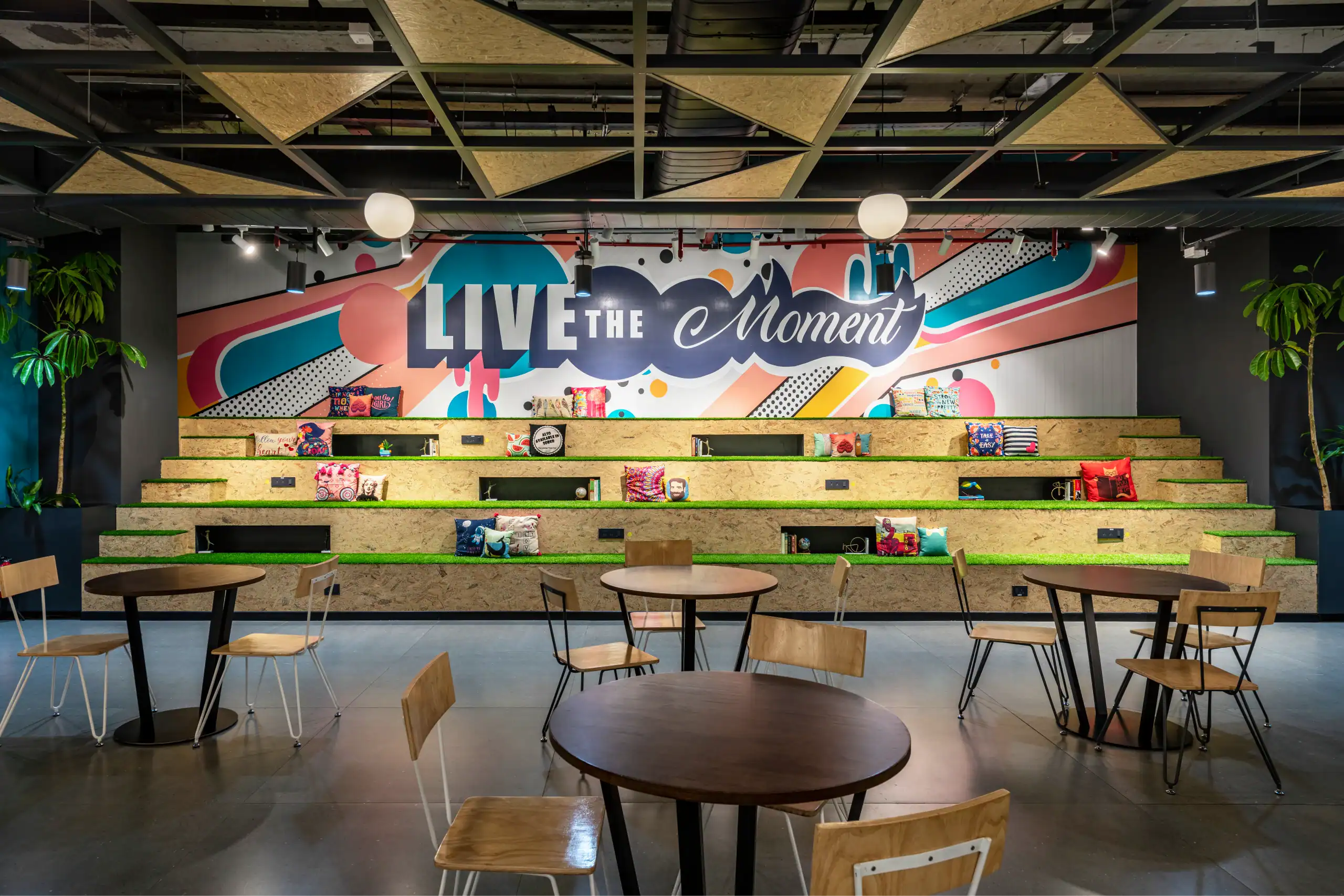Until recently, many organizations have focused on establishing systems to remove trash without considering the waste they produce. However, there is an increasing emphasis on waste management, with proactive businesses recognizing the benefits of comprehensive waste reduction programs. The growing concern about office furniture waste presents a significant environmental and economic challenge globally. This issue is further exacerbated by rapid technological advancements and evolving workplace trends, which frequently render existing furniture obsolete.
To tackle this challenge, a comprehensive approach is necessary, incorporating sustainable design, ethical disposal, and innovative waste management strategies.
In Part 1, we explored the alarming impact of unmanaged office furniture waste on landfills and our environment. We built a compelling case for a proactive approach – creating a clear plan for the “next life” of your office furniture. Now, let’s dive into practical solutions that businesses can adopt to reduce and recycle office furniture waste effectively.
But first, let us understand the factors influencing this change in perception about waste and waste management.
The Change in Perception
India
In India, the mounting office furniture waste is driving a significant shift towards sustainability. Regulatory frameworks such as the Extended Producer Responsibility (EPR) are pushing businesses to rethink their waste management strategies. Local innovations in recycling and upcycling are gaining momentum, with several startups focusing on converting waste into valuable resources. 82% of Indian businesses are planning to implement sustainable waste management practices within the next two years, as per a study by the Associated Chambers of Commerce and Industry of India (ASSOCHAM).
Singapore
Singapore’s Zero Waste Masterplan highlights its commitment to sustainability. With limited landfill space, Singapore emphasizes the importance of reducing waste at the source. The government’s active role in promoting recycling and reuse, combined with stringent regulations, is compelling businesses to adopt more sustainable waste management practices.
According to Singapore’s National Environment Agency (NEA), the country’s commercial and industrial waste generation reached 8.1 million tonnes in 2022 itself. Thus, effectively managing office furniture waste is crucial for achieving Singapore’s ambitious goal of diverting 70% of waste from landfills by 2030.
Malaysia
Malaysia is seeing a growing awareness of environmental issues, with government initiatives encouraging businesses to minimize waste. As per a report by the Malaysian Department of Environment (DOE), office furniture waste contributes to over 15% of the total commercial solid waste generated in the country.
Therefore, the focus is on circular economy principles, where products are designed for longevity, and materials are continuously cycled back into the economy. Businesses are increasingly participating in these initiatives, recognizing the economic and environmental benefits.
Rest of Southeast Asia
Across Southeast Asia, countries are grappling with the dual challenges of rapid urbanization and waste management. Governments and businesses are collaborating to develop innovative solutions that address these issues. The push towards sustainable practices is evident in the rising number of green certifications and the adoption of circular economy principles in office furniture design and waste management.
Hence, how can organizations in Southeast Asia and the rest of the world move toward sustainable and circular economy-inspired practices? Here are the feasible solutions.
Actionable Strategies for Waste Reduction
Ethical Disposal
Implementation: Establish partnerships with certified e-waste recyclers and disposal companies to ensure that old and unusable office furniture is disposed of in an environmentally friendly manner. Create an internal policy that mandates the ethical disposal of all office furniture.
Benefits: Ethical disposal ensures that hazardous materials do not end up in landfills, reducing environmental pollution. It also aligns with corporate social responsibility (CSR) goals and enhances the company’s reputation.
Actionable Insight: Regularly audit your disposal practices and maintain a list of certified recyclers. Educate employees on the importance of ethical disposal and provide them with clear guidelines.
Furniture Take-Back Policies
Implementation: Collaborate with furniture manufacturers that offer take-back programs. These programs allow businesses to return old furniture to the manufacturer, who then recycles or refurbishes it.
Benefits: Take-back policies promote a circular economy by ensuring that materials are reused or recycled. This reduces the demand for new raw materials and minimizes waste.
Actionable Insight: When purchasing new furniture, prioritize suppliers with take-back programs. Negotiate these terms as part of your procurement process and track the lifecycle of your furniture inventory.
Multi-functional Furniture and Collaborative Zones
Implementation: Invest in multi-functional furniture like mobile whiteboards, modular desks, and transformable conference tables. Create dedicated collaborative zones with flexible seating arrangements and moveable partitions.
Benefits: Multi-functional furniture and collaborative zones promote adaptability and cater to diverse work styles. This eliminates the need for dedicated furniture for specific tasks, reducing overall furniture needs.
Actionable Insight: Conduct space utilization studies to understand employee needs and preferences. Work with designers to create flexible spaces with multi-functional furniture that can adapt to various work activities.
Employee Furniture Reuse Programs
Implementation: Establish an internal program where employees can reuse or repurpose office furniture for home use or personal projects. This can include selling or donating surplus furniture to staff.
Benefits: Reuse programs extend the lifecycle of office furniture and reduce waste. They also boost employee morale by providing them with useful resources.
Actionable Insight: Create a digital platform where employees can view and claim surplus furniture. Promote the program through internal communications and highlight its environmental benefits.
Partnerships with Non-Profits
Implementation: Partner with non-profit organizations that accept donations of gently used office furniture. These organizations often refurbish and distribute furniture to schools, community centers, or low-income households.
Benefits: Donating furniture supports community initiatives and reduces waste. It also enhances the company’s social responsibility profile.
Actionable Insight: Identify reputable non-profits and establish long-term partnerships. Organize regular donation drives and engage employees in the process to foster a culture of giving back.
Furniture Refurbishment and Repurposing
Implementation: This may include reupholstering chairs, refinishing desks, or transforming furniture pieces into new functional items.
Benefits: Businesses can save up to 50% on furniture costs by opting for refurbishment over replacement. Refurbishment and repurposing prolong the lifespan of office furniture, reducing the need for new purchases and minimizing waste. This approach fosters creativity and innovation within the organization.
Actionable Insight: Create a dedicated team or collaborate with local artisans to manage refurbishment projects. Moreover, showcase successful refurbishments within the office to engage employees, spotlight sustainability efforts, and encourage participation.
In Conclusion
Effective management of office furniture waste is not just an environmental imperative but also a strategic business decision. By implementing these actionable strategies, businesses can significantly reduce their environmental footprint, enhance their sustainability credentials, and contribute to a circular economy.
Connect with our sustainability experts at Zyeta to learn how we can help your organization implement these strategies and achieve your sustainability goals.
Similar Reads:
How Can Businesses Effectively Manage Office Furniture Waste? Part 1







